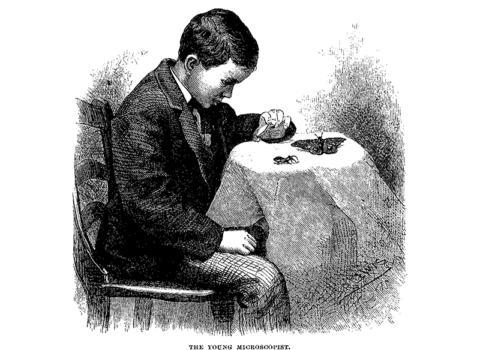Le Chagrin
"Could I not avoid Trump and his bullshit, not even by crossing the Atlantic Ocean?"
On the eve of Bastille Day, July 14, I found myself near the Eiffel Tower, facing barricades, soldiers, and police—all placed there in preparation for Donald Trump’s visit. My presence in Paris on the same day as the U.S. president’s was purely coincidental, but I still felt as though I was being pursued by this raving lunatic, who dominates the attention of the media and a significant portion of the global public. Could I not avoid Trump and his bullshit, not even by crossing the Atlantic Ocean? Thoroughly annoyed, I began to wonder about the character of the new French president, Emmanuel Macron. Why had he invited this lout in head-of-state’s clothing to traumatize the precise Paris neighborhood where my mother’s side of the family had lived for so many years? What was his purpose? What had gotten into him?
As a French-American with dual citizenship, I was suffering a dual humiliation. To begin with, the idea of Trump at a restaurant table not far from my family home, scarfing down Alain Ducasse’s haute cuisine (or rather sitting at a trough filled with overcooked steaks, which is how I imagined him), repulsed me, even though the meal occurred in a diplomatic context well outside my milieu. And while the Jules Verne restaurant atop the Eiffel Tower isn’t what you’d call my corner bistro, I could sense the man’s corruption even from a great distance.
Worse, however, were the preposterous statements made by Macron—ostensibly the symbol of a France engaged in a period of full renewal—to justify the American president’s visit. I confess that I’m no admirer of my American president, but in critical times I count on a French head of state, theoretically aided by the counsel of an excellent diplomatic corps, to take a stand in the name of civilization. That’s part of my French pride.
And so I read newspapers and watched television to get better informed about this manifestation of contemporary realpolitik. Starting with Le Figaro and Le Monde, I learned from the headlines that “Macron wants to take Trump out of his isolation” (Le Figaro), and indeed that “the French president wants to take his guest out of his international isolation” (Le Monde). Now, there’s some material for serious concern. Would we really want Trump to “come out of his isolation”? Isolation seems to me exactly the measure that needs to be taken in regard to Trump. In the scariest case, he’s a dangerous sociopath (though extraordinarily talented at exciting crowds) who ought to be locked up, a little like the Marquis de Sade. Psychologists may disagree about the proper treatment for Trump, but in my opinion the best course would be to respond to his ludicrous behavior either forcefully or indifferently. Sometimes a difficult teenager needs bawling out: “Clean up your room before you come to the table!” And other times it’s more effective to say calmly, “Stay in your room. You’re too rude to eat with adults.”
Throughout his life, Trump has had an unhealthy need to be noticed, to be the star of the show. Despite the insults he hurls at The New York Times and CNN, he couldn’t do without them. If the media and the political class would ignore this disagreeable man, he’d turn into a big kid, more docile, more manageable, and enormously eager to please important people. Macron chose to do exactly the opposite, a decision bound to embolden Trump in his nastiness.
Macron, it seems, is weak not only in elementary psychology but also in his country’s history. “Our two nations have always been allies,” he declared at the joint press conference. Come again? Macron is young, but all the same he should remember the rupture between Paris and Washington in 2003, when the American invasion of Iraq was imminent. Furthermore, Brigitte Macron, whom Trump praised for being “in such good physical shape,” is old enough to remind her husband about President Charles de Gaulle’s famous speech in Phnom Penh in 1966, when he denounced American intervention in Indochina, as well as his decision, the same year, to withdraw France from NATO’s integrated military structure.
Nevertheless, as Macron confided to the Journal du Dimanche, the couples’ dinner in a fine restaurant overlooking Paris was arranged “to present an open and attractive image of Paris, of our country, and of our economy.” I’m certain that the view was very edifying for a man as ignorant of the world as Trump. Maybe not so edifying for Macron, finding himself as he did in a large restaurant devoid of people except for the two presidential couples and the waitstaff, and sitting across from a creep who had made vulgar remarks to his wife. Actually, the most horrible possibility to contemplate would be that Macron, when he announced that the event was a “dinner among friends,” was speaking the truth!



